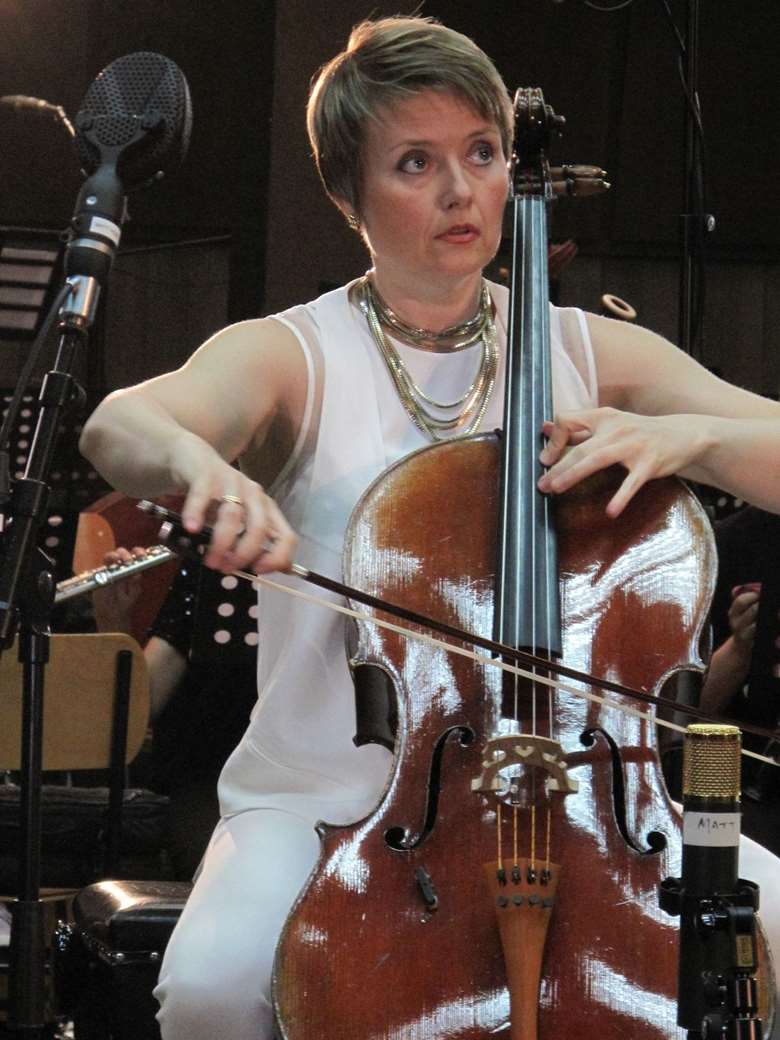Setbacks and steadfastness: the impact of injury on musicians
Corinne Morris
Thursday, January 21, 2021
Cellist Corinne Morris has been beset by injuries that have prompted her to think more holistically about her playing. She details her journey below...

As my third album Belle Epoque 1886, recorded with Petr Limonov, is released on SOMM Recordings, I’ve been reflecting on my journey back to the stage.
In 2013, after a five-year gap in my performing career due to a serious shoulder injury, I was able to begin playing again. The path to recovery was a wild and unmapped ride and I mostly stumbled on information and strategies to help me through this debilitating time. My quest for knowledge even made me explore the world of sports medicine and through determination, grit, and the haunting Ab minor melody (1st movement) from Dvorak’s cello concerto, I somehow found a way through the chaos of healing.
The next leg of the journey was all about building the ‘cello muscles’ and regaining my technique and, of course, making contact with the music industry once again.
I started to perform again, and felt physically more and more at ease playing the solo repertoire but also chamber music. In 2016, I had the opportunity to perform with the Scottish Chamber Orchestra and subsequently recorded the album Chrysalis (Linn Records), with concerti by Monn and Haydn. This album did incredibly well on the Classical Charts reaching 2nd position and being named album of the week by Classic FM. My career was progressing, and I was performing more and more. I premiered a new major concerto written for me by the acclaimed composer Nimrod Borenstein with the BBC Philharmonic. And then, in 2018 I hit another roadblock! This time I was diagnosed with burnout! The stress I had been through trying to regain my health together with the pressures of a developing career were suddenly - or perhaps not so suddenly, but pervasively - too much!
Could I talk about this publicly at the time? Me? the cellist with the 'shoulder injury story' who was resuming her career and who once again was slowed down by a physical burnout? I certainly didn’t feel this was the right thing to share with an industry that still carries stigmas around physical or mental issues, so I continued for as long as I could, all the while seeking answers to my new setback.
I certainly didn’t feel this was the right thing to share with an industry that still carries stigmas around physical or mental issues, so I continued for as long as I could
My symptoms were mainly located in the lower back and over a period of two years, I suffered several back spasms that would keep me ‘out of action’ for several weeks at a time. A few concerts had to be cancelled; a few projects were postponed or lost. But I was determined not to stop.
My answer came from a British physiotherapist Christopher Gordon based in Germany who has specialised in myofascial treatments and the broader techniques of stress management. With regular week-long sessions, I slowly improved and started to regain the control of my lower back. What I learnt along the way, is that when one body part goes through a traumatic experience such as my shoulder did during the time it was injured, other body structures compensate for the inactivity of the affected part. This effectively ‘loads’ the surrounding muscles, ligaments and tendons and overuse is a common result of this imbalance. So, a more holistic approach to my initial healing would have produced a more balanced recovery, not to mention the mental aspects of going through these various setbacks.
I am well aware that musicians struggle immensely in the area of physical and mental management. There are various therapists who can certainly help but often their expertise is limited to their specialty. There are coping strategies to manage stage fright or performance anxiety. There are wonderful instrumental or vocal teachers who try to impart something of this in their teaching, but most of the lesson time gets absorbed by music-making not strategies to live a better, healthier life.
So, what of a holistic approach to learning to manage our lives as performing musicians? What system could address these various aspects? These questions have inspired me to want to develop some answers. I am currently laying down a method which will teach and support musicians from the aspiring professional to the newly graduated student and beyond. It aims to give a blueprint of the steps, habits and practices necessary to create a balanced life in the world of music-making. This will launch in spring. Further info can be found at www.highperformancemusicians.com
Corinne Morris’s recording with pianist Petr Limonov, Belle Époque 1886, a disc celebrating a golden age of French chamber music coupling cello sonatas by César Franck and Benjamin Godard is out on SOMM Recordings on 22 January 2021: https://newalbm.link/belleepoque/